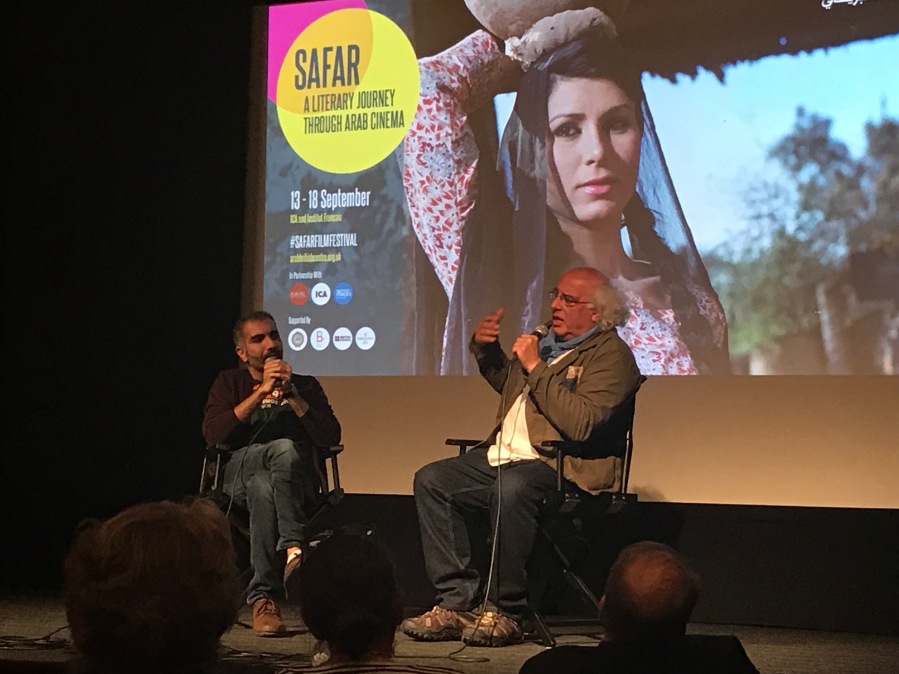 The fourth edition of SAFAR is taking place at the ICA and the Institut Francais, running from 13-18 September. The festival, curated by Joseph Fahim, included films from Iraq, Syria, Egypt, Morocco, Tunisia, Algeria, and Palestine, the genres ranging from adaptations, “creative documentaries,” shorts and features.
The fourth edition of SAFAR is taking place at the ICA and the Institut Francais, running from 13-18 September. The festival, curated by Joseph Fahim, included films from Iraq, Syria, Egypt, Morocco, Tunisia, Algeria, and Palestine, the genres ranging from adaptations, “creative documentaries,” shorts and features.
The full program can be found here.
I attended the second day of the festival at the ICA, where the films featured were Stories of Passers Through by Koutaiba Al Janabi, and Poisonous Roses by Ahmed Fawzi Saleh.
The first film is less a documentary and more a meditative “visual poem” (as someone in the audience put it) compiling Al Janabi’s photographs over many years with a few short film clips about what it means to be exiled. These different forms of footage are held together, barely, by recurring and repeating symbols and phrases and especially by the soundtrack. The sound of the radio, of bombastic nationalistic speeches, becomes inescapable as the film progresses, still heard even after thirty years away from Baghdad.

In the Q&A, a woman asked whether Al Janabi intended for the film to be depressing, whether he wanted to give a “negative” impression of immigrants, pointing out that many immigrants made a success of their lives. To this Al Janabi responded that it had nothing to do with success — he himself had acheived success in his life, yet the sense of exile remains, and must be dealt with, to be understood, if any closure is to be found. The final scenes of the film do suggest such closure, though the metaphoric burial of the past was too overwrought for me.
Poisonous Roses is ostensibly an adaptation of Ahmed Zaghloul Al-Sheety’s novel yet it departs from it radically both in tone and in content. The film is a “portrait of modern lower-class Cairo” where the setting, the old tannery district, is in some ways the central character. We observe the every day lives and routines of people living in this district, seeing them going through the motions of a routine-filled, every-day life lived “without despair and without hope,” as the director put it in the Q&A.

When some in the audience pushed for more clarity regarding the ambiguous relationship of brother and sister, Saleh said that the film was an exploration in part of the place of men in Arab societies, the idea that any man is better than none. This I felt was one of the most effective aspects of the film — despite the spare writing, we quickly come to understand the sister’s bitterness, her determination that if she is to have no escape, either by marriage or by migration, then neither should her brother.